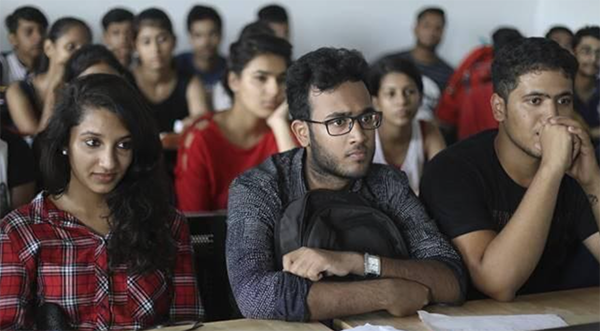Changes in the Educational Sector Around the World
By Space Coast Daily // December 1, 2021

Due to the epidemic, several nations have had a rough year. Governments, on the other hand, have education plans in place for this year and next. So how will education reform be implemented in the United States, Europe, India, and New Zealand?
More Professional Skills in Schools in the United States
One of the top concerns for newly elected US President Joe Biden is education. Jill, his wife, has been teaching English in Delaware for many years and considers teaching a passion rather than a job.
As a result, Biden assures educators in the United States that their voices will be heard in the next White House administration.
For instance, the newly elected US president recommends “re-inventing high school” by closing the financial gap between schools for various groups of people and reinforcing schools in low-income regions with professional skills courses.
According to Biden, art, music, and professional skills may entice pupils to study by instilling a feeling of pride and significance in them via creativity and maker culture (a cult of “do it yourself”).
As a result, a person in charge of education policy will depend on teachers. Biden, in particular, wants to enhance teacher pay, implement a universal preschool program for children aged 3 to 4, and provide practical professional courses to all high school students.
Increasing Digital Literacy in Europe
The European Commission has approved a 2021-2027 digital education action plan. Its purpose is to “reset” education in response to the digital age’s new difficulties. This will include a greater focus on students using online services to supplement their study, maybe incorporating sites like en.samedayessay.com/ and others.
As a result, by the end of 2021, the Commission will provide recommendations for elementary and secondary schools on online and remote learning. This will be a single advice paper for all EU member states on successfully and inclusively adopting distance, online, and mixed learning.
Furthermore, Europe intends to establish a European platform for sharing high-quality, accredited online curriculum and courses. They will also debut SELFIE, an online digital self-learning tool for instructors.
What is the purpose of this? Experts say that children should obtain digital abilities at an early age, including the ability to spot misinformation and fakes, discern a legal essay writer from a fake one, and comprehend artificial intelligence technology.
India’s Education Strategy Is Being Revised

The Indian government renamed its education departments in 2021. Simultaneously, the education plan was approved, including a large-scale reform affecting Indian schools, colleges, and universities.
By the end of 2021, the initiative will be fully realized. How India’s education system will change:
■ It is hoped that by 2030, all pupils in all schools will be fully involved.
■ Only competency will be tested in school, and assessments will be administered twice a year.
■ Achieving universal reading and numeracy literacy.
■ Student cards should be used instead of grades to make the report on the child’s educational progress more clear.
■ School days with no portfolio – students will have the option to get real professional skills or participate in an internship at least 10 days every year.
At the same time, the reform aims to accomplish the following goals in higher education: by 2035, 50% of young people will be enrolled in colleges or universities; unify university admission tests; construct interdisciplinary teaching with subject selection flexibility; and so on.
By the way, if you are a current student and need to write a specific essay like, for example, a feminism essay, there is an option of using paper writing services for you.
A Reform of Vocational Education in New Zealand
In 2021, New Zealand will change vocational tertiary education to satisfy labor market needs and give learners the skills employers desire.
Seven major adjustments were made to achieve the aim. Particularly to ensure that vocational education is tightly linked to real-world job experience and requirements. The Institute of Skills and Technology will be established for this purpose. Students and employees in need of retraining or new skills will be guided and supported by it.
Also, work will be centered on the quality of occupational education, which will bring together educational institutions, companies, and specialists to develop a new successful program for students.
Important Challenges in the Not-So-Distant Future
Given that the impacts of the coronavirus outbreak will be felt for a long time, even after herd immunity has completely developed and everyone has been vaccinated, our primary responsibility right now is to identify and treat the most pressing challenges.
This is particularly important in education, which depends significantly on being the most innovative and up-to-date to develop well-educated and self-assured young people.
Of course, each region of the globe has its unique set of difficulties that must be recognized and addressed. Even in the United States, each state must devote significant resources to adapt to new realities while still addressing current issues in the educational realm, such as digital literacy, real-life proficiencies, and other issues.












